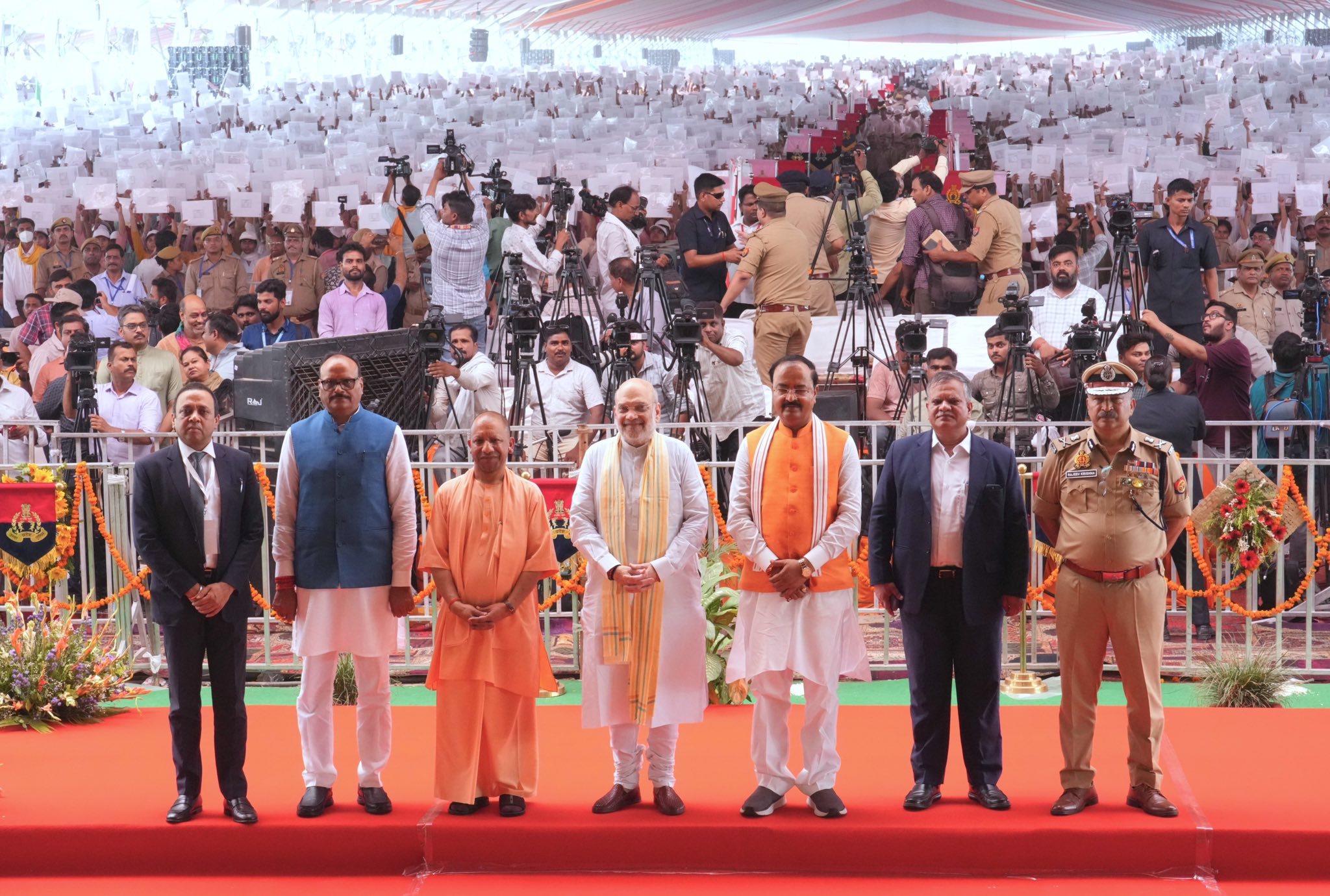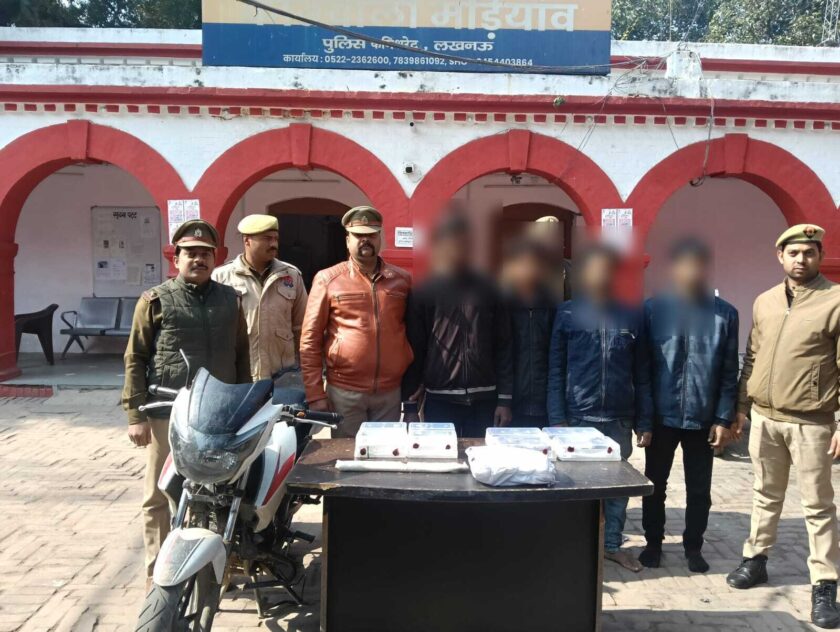Lucknow : In a major boost to the state’s policing capacity, Union Home Minister and Minister of Cooperation Amit Shah handed over appointment letters to 60,244 newly selected Civil Police Constables in Lucknow. Uttar Pradesh Chief Minister Yogi Adityanath and other dignitaries were present during the event.
Addressing the large gathering, Amit Shah called it a historic day for Indian law enforcement, as more than 60,000 youth are set to join the ranks of the country’s largest police force. He highlighted how the recruitment process was carried out with complete transparency, drawing from a pool of over 48 lakh applications without any influence of bribery, politics, caste, or corruption.

Of the new recruits, more than 12,000 are women—a reflection of growing gender representation in the force. Shah noted that the policies of the central government for women’s reservation are being implemented effectively in Uttar Pradesh, setting an example for other states.
Reflecting on the transformation in Uttar Pradesh’s law and order situation, Shah credited Chief Minister Yogi Adityanath’s leadership since 2017 for revitalizing the state police. He said that earlier, recruitment processes were marred by bias and nepotism, but the adoption of technology has ensured merit-based appointments.
The Home Minister also pointed out significant developments such as the establishment of control rooms, command centres, PCR units, and over 150 mobile forensic labs, which are now operational in the state. He urged the new recruits to serve with commitment, guided by the principles of security, service, and sensitivity.
Amit Shah emphasized that these appointments come at a time when India is undergoing transformative change. He linked the period from 2014 to 2025—under the leadership of Prime Minister Narendra Modi and CM Yogi—as a phase of national revival. He encouraged the new constables to contribute towards making Uttar Pradesh both developed and secure, especially as the country moves towards its goal of becoming a global leader by 2047.

The Home Minister underlined the upcoming judicial reforms through the implementation of three new laws—Bharatiya Nyaya Sanhita, Bharatiya Nagarik Suraksha Sanhita, and Bharatiya Sakshya Adhiniyam. These changes, he said, aim to deliver justice within three years of filing an FIR, and Uttar Pradesh is expected to play a vital role in this legal transformation.
Shah praised the government’s efforts in eliminating riots, curbing crime, and ensuring equitable governance in the state. He asserted that law now rules Uttar Pradesh—not criminals or mafias.
On a broader national note, Shah reflected on the Modi government’s achievements over the past 11 years, citing improvements in poverty alleviation, infrastructure, digital empowerment, women’s welfare, and national security. He mentioned that India has moved from being the 11th to the 4th largest global economy and is expected to reach third place by 2027.
He also addressed the government’s response to national security challenges, referencing India’s surgical and air strikes in retaliation to attacks in Uri and Pulwama, and the recent “Operation Sindoor” post-Poonch attack, which sent a clear message of zero tolerance to terrorism.
In closing, Shah highlighted India’s achievements in space exploration, cultural rejuvenation, and legal reform—pointing to landmarks such as the Shivshakti Point on the Moon, the Ram Temple in Ayodhya, the Kashi Vishwanath Corridor, and the Uniform Civil Code in Uttarakhand. He said the youth now bear the responsibility of preserving these achievements and building a secure and prosperous India.









